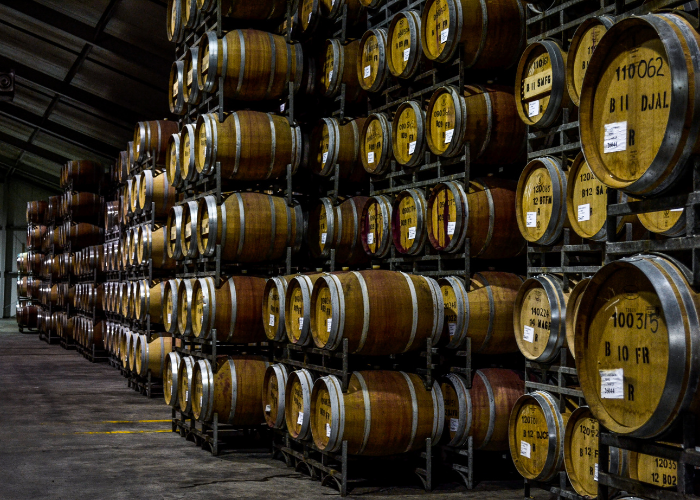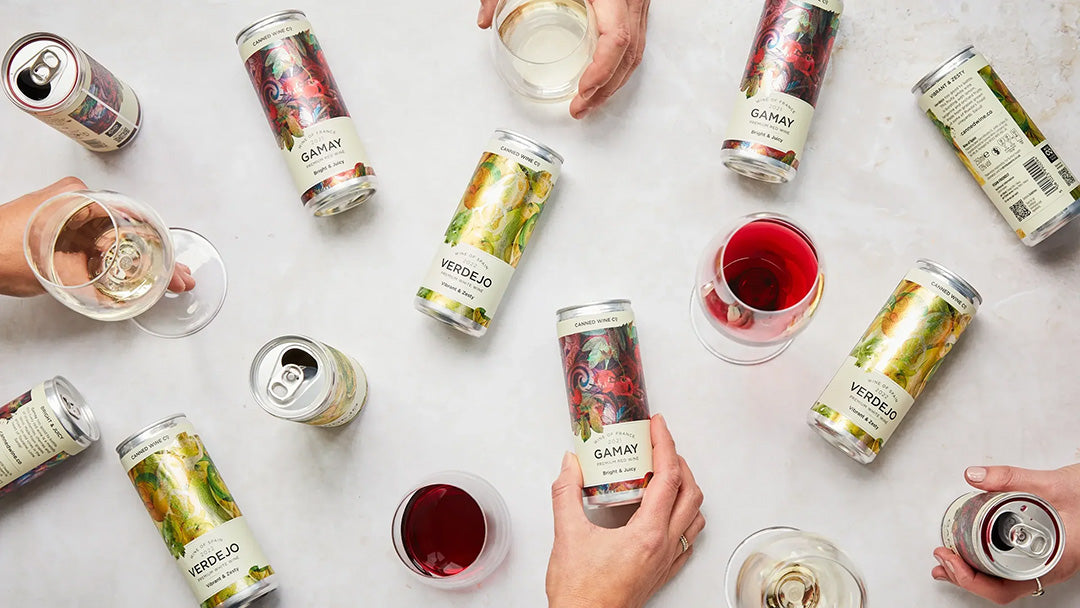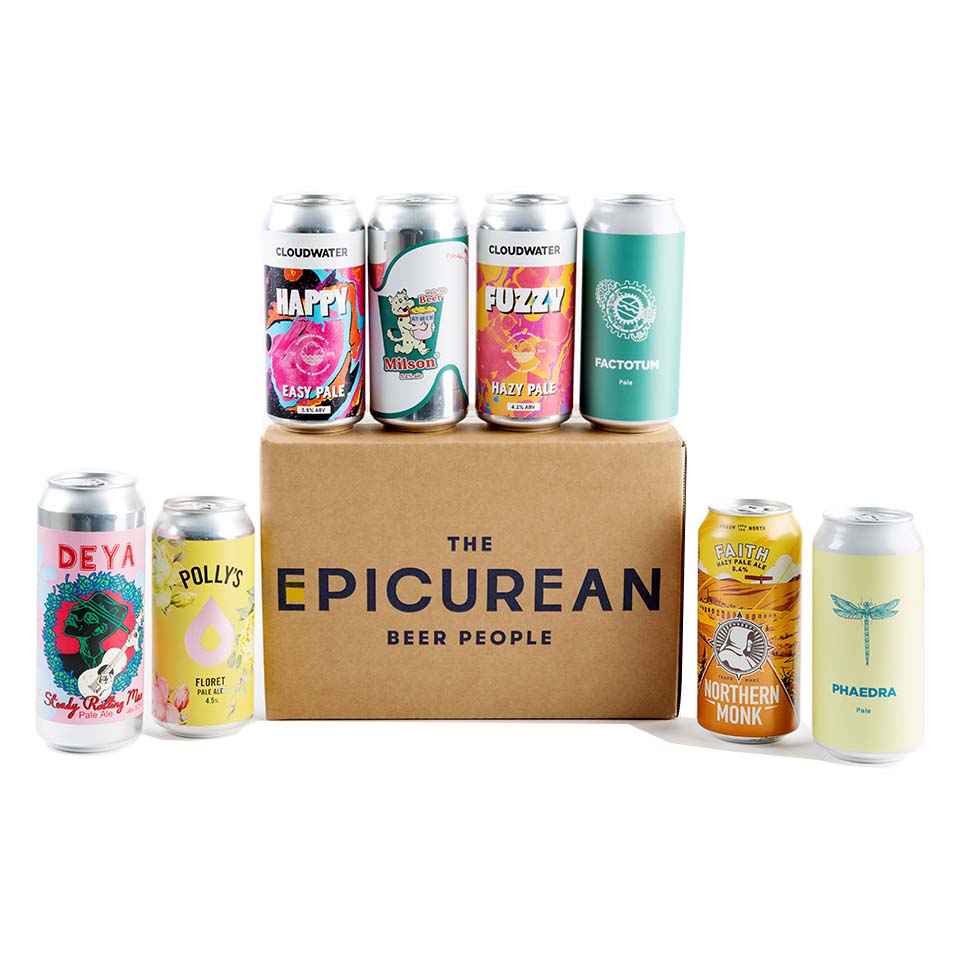
How to store beer properly
September 29, 2023
When it comes to beer, we can quickly forget how to store it correctly. The first thought when purchasing beer is to crack one open and put the rest in the fridge. This is wrong. There is actually a lot of thought that needs to be taken to store beer properly. So, we’re going to do the hard work for you.
In today’s article, we’re going to dive into our tips to store your beer properly. So, crack one open, and enjoy.
Ideal storage conditions
Firstly, no matter if you're storing beer or food, the conditions have got to be right. It’s critical to have proper storage conditions when storing your beer otherwise you could encounter big issues; such as the quality of beer not being preserved for a long period of time. By keeping your craft beer in the correct space it will remain of a high quality for a lengthy period. It will prevent the flavour from going off, oxidation and spoilage.
So, what conditions should you keep the beer in I hear you ask? Well, temperature is the first important factor you need to consider. Different beer styles have varying ideal temperatures, however, the majority of the time they should be stored in a cool and stable environment. The recommended temperature to store beer is 0-4 degrees Celsius, so as long as you can maintain this rate your beers will be fine. But it is important that this temperature doesn’t fluctuate otherwise it will negatively impact the beer. For example, freezing temperatures can cause the beer to expand and it could potentially burst in its container.
Furthermore, another factor you should consider is light. The majority of beer consumers don’t realise that light plays a major role in maintaining the flavour of beer. For example, if your beer is exposed to UV light for a considerable amount of time it can cause the flavour to become ‘skunky’, which will result in an unpleasant drinking experience; and also a waste of your money. This is why many breweries store their beverages in dark environments so that they aren’t exposed to sunlight or fluorescent lighting. We encourage you to do the same.
Finally, before moving on, another tip to store your beer correctly is to place the beer in an upright position. Now, this is very basic but it’s something a lot of people forget to do properly. Just by positioning your beers upright, you will prevent them from bursting upon opening the can.

Types of beer storage
Now you understand the ideal conditions for storing beer, the next step is to be aware of the types of storage. Beer storage can vary depending on the type of beers you need to store and the intended use. If you plan on consuming your beers fairly soon then keeping them in a fridge is absolutely fine. It will keep the flavour of your beer intact short term, however, if you leave them in there for too long then the flavours will start to go off. Beer coolers or cool dark areas are other good ways to store your beer short term too.
If you don’t think you’ll be drinking all of your beers any time soon, then there are other storage ideas you should consider. It’s worth noting that we only recommend storing your beers long-term if they are special or ageing beers, such as barleywines, stouts and sours. This is because these types of beer can benefit from extended maturation. Regular beer such as a standard lager will not increase in flavour, so make sure to avoid this.
To store your beer long-term, we suggest you follow similar steps as you would short-term. So, store them in cool and dark areas, maintain them at optimum temperature, and keep them upright. Beer fridges are good to use in this instance as you have full control of what temperature it is. Also, if you have a considerable amount of one beer then a barrel could be the best option for you. All of the top breweries do this but it does take a considerable amount of effort. Something for you to bear in mind and it leads nicely to our next section…

Beer cellaring and ageing
If you’re unsure what beer cellaring and ageing are, then don’t worry, we will explain it all to you. So, beer cellaring and ageing is a process that improves the flavour of beer over a lengthy period of time. This is because the beer is stored and made in a certain way to meet the desired requirements. Beer cellaring can only work if the environment is cold and dark; as mentioned previously, the warmth and direct light can drastically change the flavour of the beer. Treat this like a wine cellar!
Before we advance any further, It’s important to mention that not all beers can be subject to this. As we’ve stated in our previous section, beer styles such as lagers do not require this process as they’re already conditioned. Beers such as sours and stouts are best for cellaring and ageing.
So, what do you think of our tips to store beer properly? Did you find them insightful? Are there any more peculiar tips we missed? Let us know by reaching out to our team today.
Alternatively, if you’re looking to try something new or join a unique group, then there’s no better place than our beer club. You’ll get nothing but the best from us - we can assure you that. If you’d like to learn more about our terrific club, get in touch with our brilliant team today.





